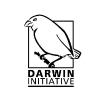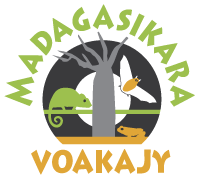Many wild animal species in Madagascar are hunted to provide people with food. We are partners on a Darwin Initiative project that aims to reduce illegal hunting and to support the sustainable and equitable use of animals that can be legally hunted.
This project is led by Bangor University and in addition to Madagasikara Voakajy, involves the Malagasy government, Conservation International, Institute Pasteur and the Département des Eaux et Forêts (ESSA), at the University of Antananarivo.
The sale and consumption of wild animals provides people with vital sources of income and food. In many countries, hunting is considered to have a negative impact on animal populations, leading to declines in large-bodied, slow-growing species and the ecological services (like seed dispersal) that they provide. These species are often legally protected and illegal hunting is thereore a criminal activity that threatens the survival of many species. However, an often overlooked fact is that many wild animal species can be legally and sustainably hunted and this exploitation is a key factor in maintaining traditional livelihoods and landscapes.
There has been very little research undertaken on the use of wild animals for food in Madagascar but there is growing evidence that primates, bats, carnivores, frogs and insectivorous mammals called tenrecs are regurarly eaten by people. This project is primarily aimed at improving the sustainable exploitation of game species in Madagascar. We aim to develop locally appropriate approaches to hunting that serve to conserve the hunted species as well as maintaining traditional practices and supporting livelihoods.
A major part of the first year of this project has seen us test and develop new methods to help us understand how important wild animals are as a source of food for people in urban and rural areas.
We are currently conducting research and supporting student training in the following areas:
- Best practice for obtaining information on sensitive and illegal behaviour
- Conservation and sustainable use option for endemic edible frogs
- Conservation and sustainable use option for endemic fruit bats
- Conservation and sustainable use option for endemic tenrecs
- Assessing risk of disease transfer between people and fruit bats
- Assessing the importance of traditional rules in maintaining sustainable harvests
This project is supported by:






